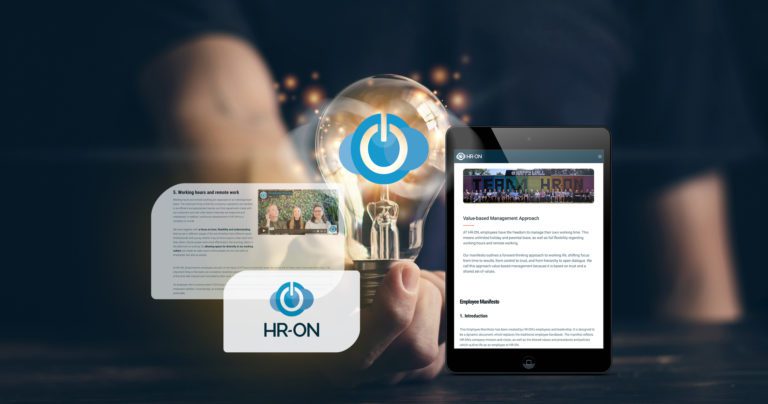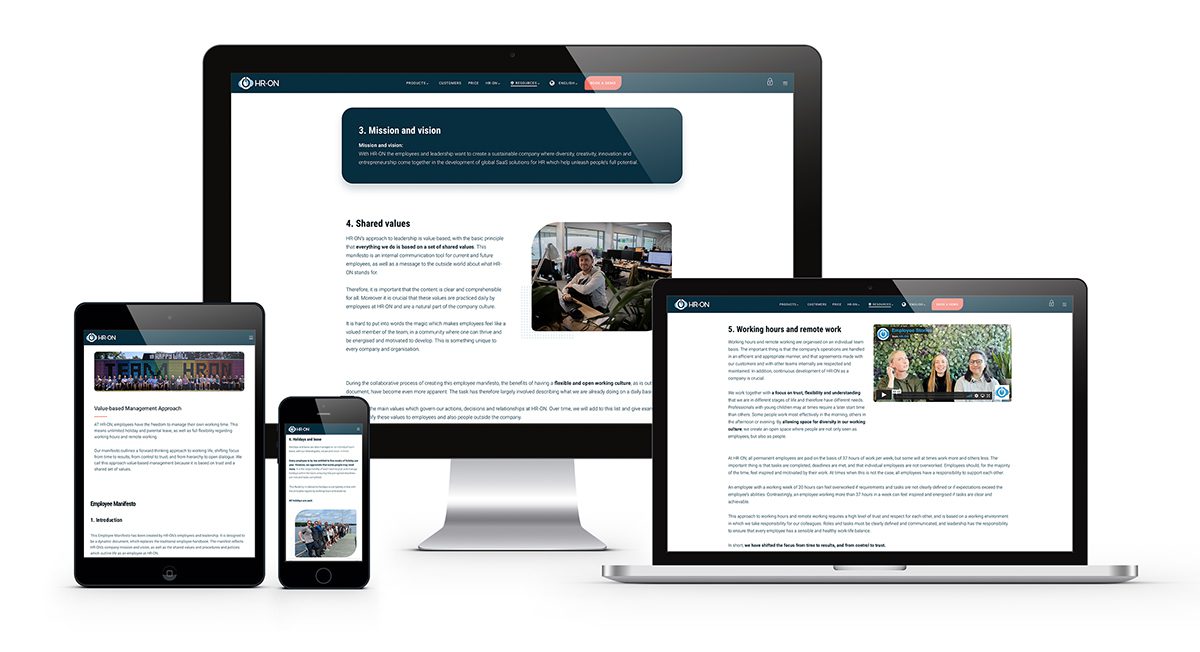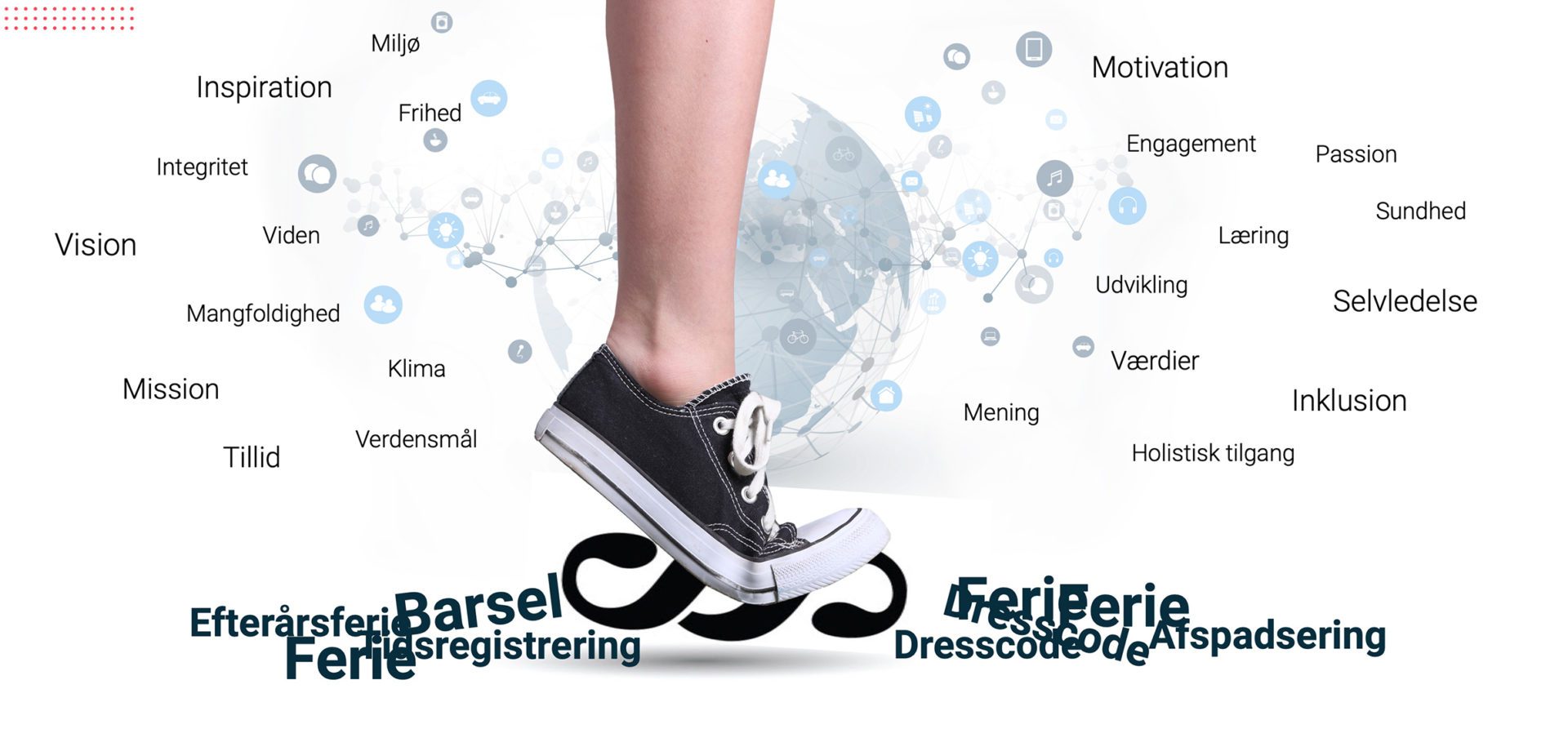
Advent article // N0. 4
Value-based leadership:
HR-ON’s philosophy and the future workplace
Value-based leadership is a reactionary management approach that has the potential to become a key part of the future workplace.
Imagine a workplace in which a good day’s work is not determined by the number of hours you spend in the office, and in which you have full control of how you get your tasks done. This, coupled with the opportunity to take as much holiday and parental leave as you need. It sounds almost too good to be true, but those are key aspects of HR-ON’s workplace philosophy. HR-ON employees have the freedom and flexibility to manage their own daily working life, to ensure a good balance with their private life. It is about shifting focus from control to trust, where the quality of results does not depend on how many hours the employee has spent on the task. In this way, the concept is based on trusting in employees’ abilities.
Furthermore, occupational psychologist Frans Boeriis recognizes that value-based self-management is a brave decision for a company. Boeriis says, ”It is important not to focus on abolishing leadership, but on redefining it”. Boeriis talks of ‘liberating leadership’, which goes against the traditional understanding of what leadership is. It is about the development of employees’ competencies through work tasks, rather than measuring results on time. Value-based leadership requires communication and trust in employees, which is a key aspect of HR-ON’s work environment.
The basis of HR-ON’s Employee Manifesto
HR-ON has created an employee manifesto in in collaboration with all employees, which has replaced the traditional employee handbook with new and more modern principles. The vision outlined in the new employee manifesto is ”…to create a sustainable company where diversity, creativity, innovation and entrepreneurship come together…”. This helps to unleash the full potentials of employees. This article will discuss certain parts of the Employee Manifesto in more detail, and highlight the benefits of this new form of leadership.
If you are interested in reading more about the Employee Manifesto, you can read the whole document here.
HR-ON’s Employee Manifesto
HR-ON has redefined traditional leadership, with flexible working times, and unlimited holidays, child sickness days, and parental leave, etc. for all employees. The key principles discussed in this article are: shared values, work-life balance and maternity leave.
Shared values
The basis of HR-ON’s workplace culture, including everyday working life and the organisatio’s leadership approach, is based on shared values. Therefore, the principles outlined in the employee manifesto must be able to be understood by all, because the document functions as a communication tool between all current and future employees.

HR-ON’s corporate culture reflects the principles outlined in the manifesto. Every employee is an essential part of the company, meaning that all employees are important regardless of their position or specific tasks. Security, respect and trust are three examples of shared values which are practiced in HR-ON’s workplace. These values impact decisions, actions and relationships made in the company, and create the common vision at HR-ON.
With all employees equally important, the traditional hierarchical system naturally disappears. Employees are judged on the results they contribute, rather than the number of hours they have spent on work tasks. Through trust and the common vision, employees therefore achieve personal development both privately and professionally. Furthermore, value-based leadership gives a sense of belonging in the company, where each employee’s contribution is equally important.
Work-life balance
This key principle places importance on the balance between employees’ private and working lives, by giving each employee the freedom to plan their own working hours. If you have had a particularly busy or stressful morning for some reason, then you have the freedom to show up at the office first at 10, for example. As a first thought, you might be thinking that this sounds good but wouldn’t work in the long run. However, HR-ON’s approach to working times is that all employees agree on their presence in the office, or hours spent working at home, within their individual teams. This approach is based on trust and on the understanding that everyone is in different periods of their lives, meaning they each have different needs. This approach therefore makes room for everyone’s unique situations. In this way, HR-ON has created a workplace where there is room to be human without a guilty conscience about meeting an hour later than others.
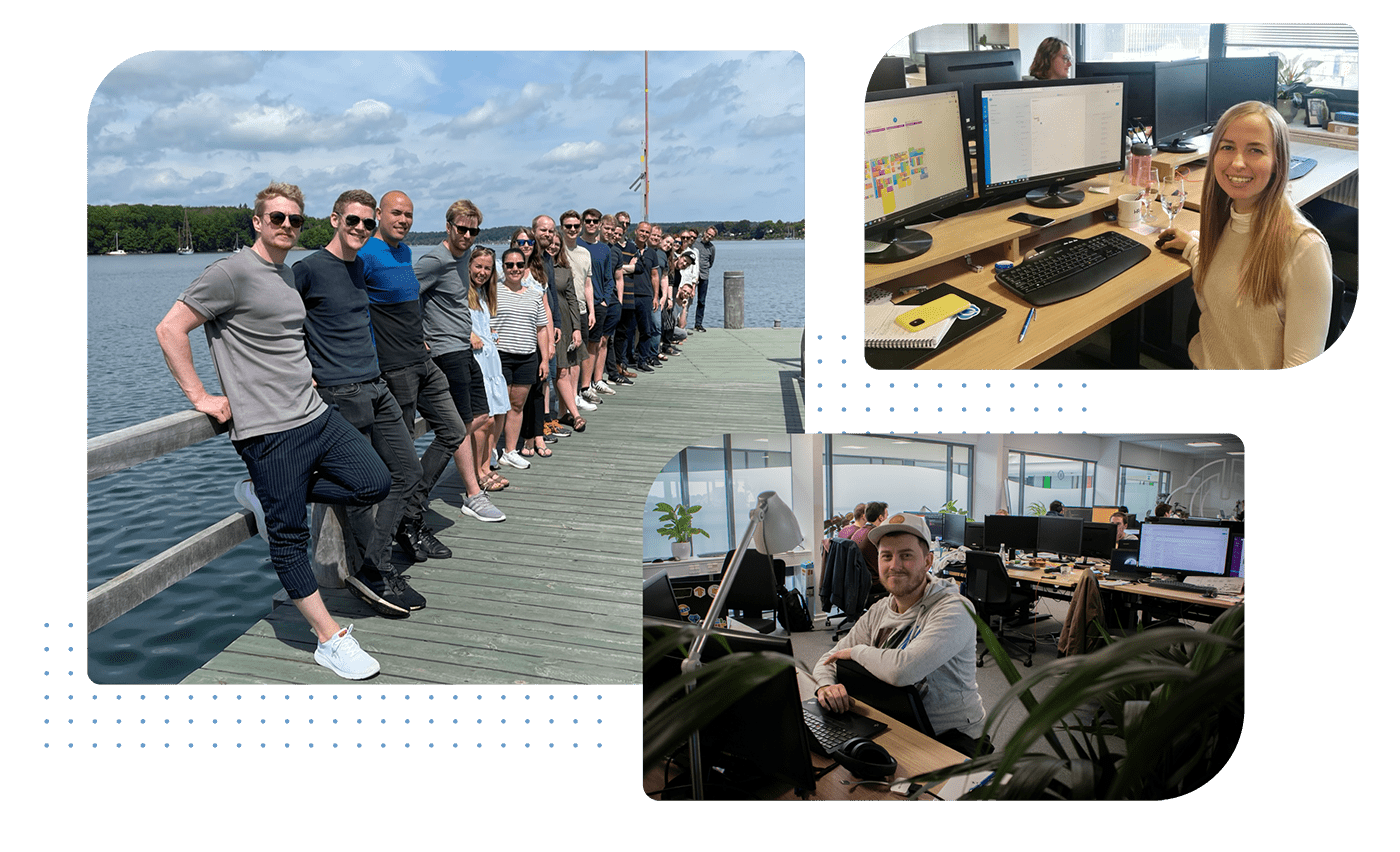
All this raises questions about practicalities, like pay in relation to number of hours. HR-ON’s employees do not have to worry about this, as everyone is paid a salary equivalent to 37 hours of work per week. Here, the element of trust is crucial once again, as the most important thing for the company is that work tasks are completed. However, it is also essential that employees only take on tasks which they find relevant and interesting. In addition, all employees have a responsibility towards each other’s well-being, where employees recognize each other’s needs.
To hear answers to many more questions, you can watch the webinar on value-based leadership here.
Parental leave and childrens’ sick days
As a parent, being there for your child can be a challenge when you have a career. Especially with the limited number of child sick days legally given in traditional management approaches. At HR-ON, employees are entitled to an unlimited number of paid child sick days. This means that if there is a need to be at home with your sick child for 2, 3, 4 or more days, then you can do it. As long as you communicate with your team. In addition, regarding parental leave, all employees have the right to the standard parental leave, as outlined in the Labor Market Act, and if necessary also more. If a parent requires more than the standard paternity leave, then this is also possible. It just needs to be discussed within the individual’s team and with the leadership.
This key principle reduces challenges on the home front and provides employees with the opportunity to achieve true work-life balance. It removes a major concern for employees as to whether they can still keep their jobs despite unpredictability such as child illness.
Christian Hansen, CTO at HR-ON, emphasizes that the work environment in many companies does not provide space for employees to focus on all aspects of their lives, notably being a parent. Christian says
“It creates a conflict between work and home life, which really should not exist, especially given that the company will always lose such a conflict.”

This will result in the employee investing less and less time and energy in the company, and loyalty to the workplace is also significantly reduced. In contrast, by allowing employees to take all the child sick days they require, contributes to a sense of security. Hansen elaborates that the key principles in the employee manifesto, make him feel more committed and motivated to invest in the company. ”That’s also the reason why i’ve been here for 10 years!”, said Hansen.
An essential aspect of the employee manifesto is to ensure that employees do not feel that it is difficult to balance their home life with their job. At HR-ON, home and work are not contradictory, which means that employees can focus on what is important at any specific moment in time. Whether it is work or family, tasks are taken care of when it suits the employee. This may sound like an unstructured approach, however, HR-ON’s experience is that it creates good dynamics and that employees have peace of mind to perform their best work.
So how does it work?
Value-based leadership may at first sound like a disorganized and chaotic approach to work. However, in practice this is not the case. In terms of how HR-ON’s employees organize their workflows, this is something that is decided within the individual teams. If you as an employee are prevented from being able to come to the office, you simply talk to your team and plan how to get the day’s tasks completed.
When speaking about the employee manifesto on a Danish news show, Ali E. Cevik, CEO at HR-ON, says that one’s working day is defined by the specific circumstances on the day, when factors at home and the company’s current status determine the program.
For example, there may be circumstances which means that you come to the office only to have to leave again after 5 minutes. However, there are also many occasions when you have a ‘traditional’ working day, where you come in at 9 and go home at 4.

The question is how this management approach can be linked so that various work tasks are not lost in the process. The key to value-based self-management is planning and communication. For the approach to work, it is essential that employees communicate with each other about various challenges the day brings. To streamline communication methods, HR-ON uses a common communication platform where all employees can contact each other.
In addition, joint planning creates a structure for the tasks to be performed. However, planning can be challenging if you are in different places. Therefore, HR-ON also makes use of other digital communication methods, where it is possible, for example, to attend a meeting online. In this way, no tasks are lost, while all employees thrive in the best way. Each employee is the boss in their own life, where the approach goes against the traditional industrial understanding that most occupations know from their own workplace. Furthermore, value-based self-management is an approach that takes into account the life and work needs of employees.
Read more about HR-ON’s calue-base leadership here.
What is the outcome of value-based leadership?
A shift in focus from control and time to trust and results comes with numerous benefits. Most importantly, value-based leadership creates a better work environment which allows employees to thrive both in their professional life and privately. This results in a less stressful everyday life avoiding the common situation where employees are completing work tasks but all the time worrying about problems at home.
Imran Rashid, a medical doctor and author, states that 90% of our behavior is governed by our impulses and emotions, highlighting the importance of workplaces taking into account both the private and working lives of their employees. The framework of the workplace should be built on the basis that employees can thrive in all areas of their lives. If not, it can result in demotivated employees. Based on the principle of trust, these frameworks will at the same time also remove employees’ guilt and worries if they are in a bad period in their lives where their performance is not the best.
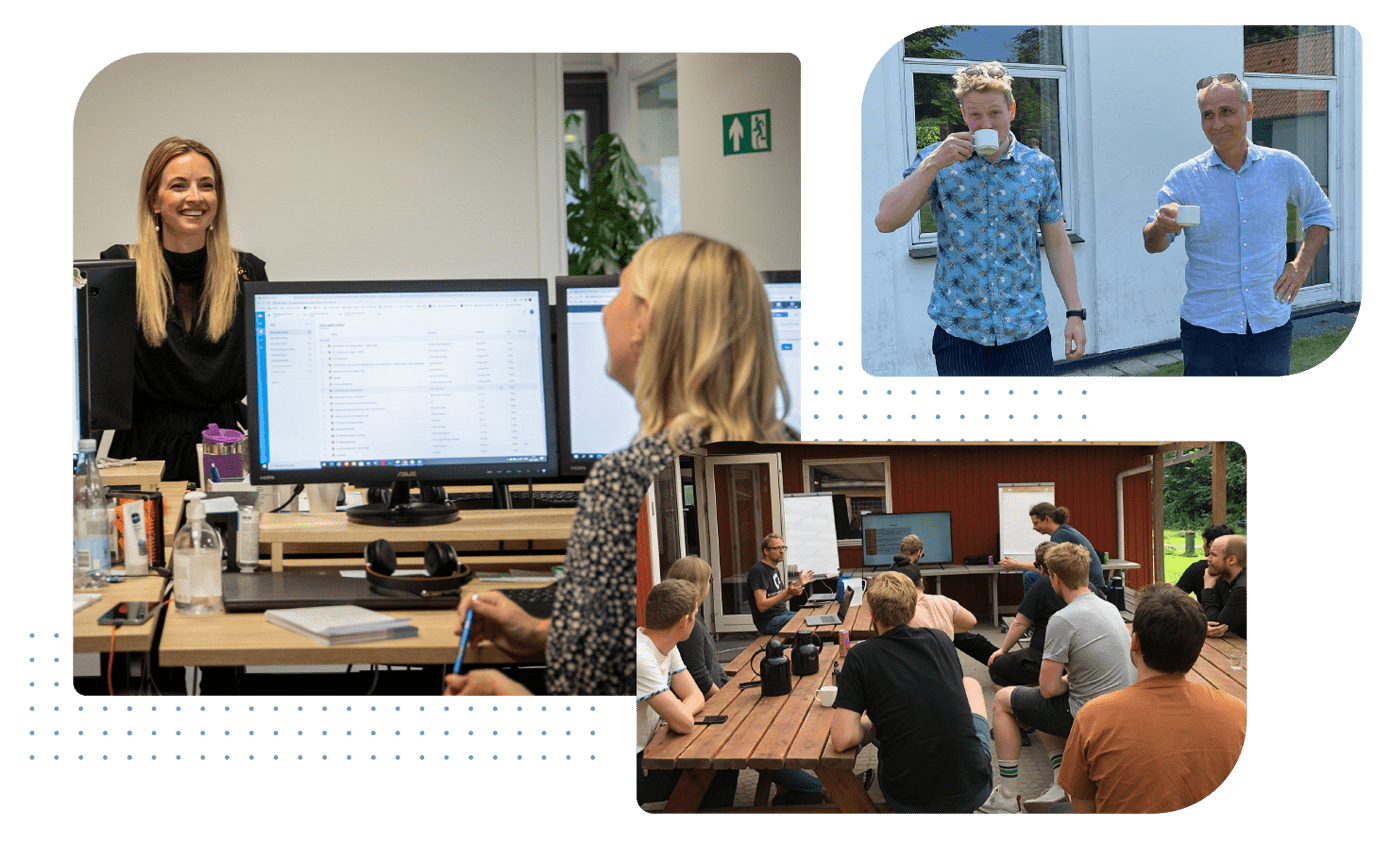
Furthermore, a study from the Harvard Buisness Review (2019), conveys that flexibility in the workplace increases employee productivity, while at the same time lowering employment costs, which is consistent with HR-ON’s experience.
In addition, value-based leadership creates a good community-feeling between employees and management. This management approach contributes to a good social environment because it is necessary to communicate and plan within teams. If you as a person function and thrive on an individual level, it is easier to work in a social environment. In this way, this management approach is a crucial factor for the social environment in the workplace to thrive.
The future workplace
Despite the fact that value-based leadership seems untraditional to many people, experts predict that the workplace of the future will have to adapt to a new reality, where flexibility and remote working become part of the everyday framework (Ritzau, 2021). Especially with the pandemic, the labour market has changed significantly, and the traditional workplace has become a hybrid work environment. This results in the emergence of new needs for employees, where they must have the opportunity to work in a physical and virtual presence. This means that value-based leadership can have a larger and more significant role in workplaces, because this management approach takes into account the needs of employees. Boeriis acknowledges that value-based leadership will be the future way to run a company, because ”a concept such as trust will (…) have a very great significance in the future ”.

